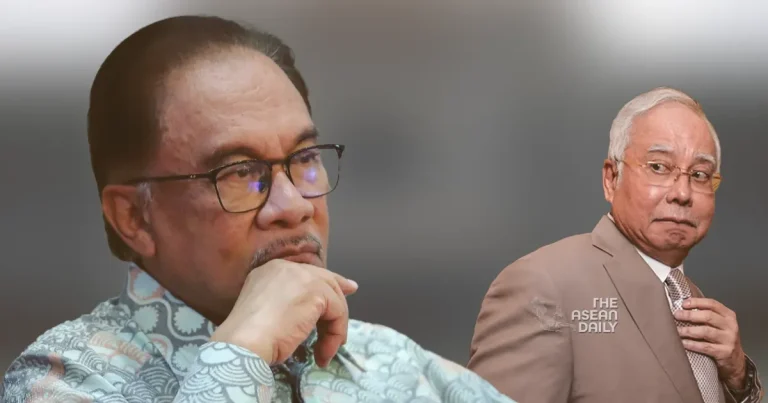21-1-2025 (KUALA LUMPUR) A fresh political storm has engulfed Malaysia as former Prime Minister Najib Razak, currently serving time for his role in the 1MDB scandal, claims the existence of a royal directive permitting his transfer to house arrest.
The controversy centres on an alleged document, purportedly issued by Malaysia’s former king, which would allow Najib to serve the remainder of his shortened six-year sentence at home. This follows a partial royal pardon granted in January 2024 that halved his original 12-year term.
The matter has thrust Prime Minister Anwar Ibrahim’s government into turbulent waters, with opposition figures accusing the administration of deliberately suppressing the document. Mr Anwar maintains that the royal addendum bypassed his office entirely, being sent straight to the attorney-general before reaching the palace for review under the new monarch’s reign.
Adding to the intrigue, the Attorney-General’s Chambers has announced plans to seek a gag order on public discourse regarding the royal addendum, whilst the former king’s palace has reportedly verified the document’s existence.
Political analysts suggest Najib’s potential release could dramatically alter Malaysia’s political equilibrium. Despite his imprisonment, the former premier’s influence remains palpable, particularly among ethnic Malay voters. A solidarity rally held on 6 January drew unexpected support from across the political spectrum, including members of the ruling coalition and opposition heavyweights from PAS and Bersatu.
The timing of this controversy coincides with Malaysia’s modest economic recovery. Recent figures indicate a 5.1 percent GDP growth in 2024, up from 3.6 percent in 2023, though concerns about wage stagnation and unemployment persist.
Dr Maria Ahmad, a political scientist at the University of Malaya, notes: “Najib’s potential return to the political arena, even under house arrest, could pose significant challenges to the current power structure, particularly affecting UMNO President Ahmad Zahid Hamidi’s position and, by extension, Prime Minister Anwar’s coalition government.”
The saga unfolds against a backdrop of broader political realignment, with some factions appearing to favour the creation of a unified Malay political front, potentially marginalising Anwar’s PKR party and its non-Malay allies.




